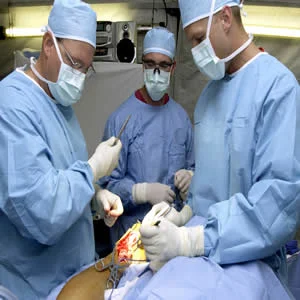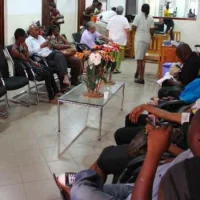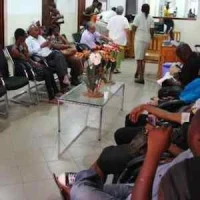A new study shows that patients who undergo surgeries on weekends tend to have longer hospital stays and higher mortality and readmissions. The study was released at the American Surgical Association meeting in San Diego.
There could be several reasons for the weekend effect which include reduced staffing and resources as well as fewer experienced doctors and nurses. The researchers hypothesise that by boosting hospital resources before, during and after surgery, it might be possible to overcome the weekend effect. This hypothesis was tested in patients undergoing appendectomies, hernia repairs and gall bladder removals.
Medical records of 126,666 patients at 117 Florida hospitals participating in a database program sponsored by the US Agency for Healthcare Research and Quality were examined. The data were linked to the American Hospital Association Annual Survey database. The researchers found five resources to help overcome the weekend effect. These include:
- Increased nurse to bed
ratio: The researchers found that ratios of 1.44 times were more likely to
overcome the weekend effect. Seventeen of the hospitals examined had a median
nurse to bed ratio of 1.3 and were able to overcome the weekend effect as
compared to those with a ratio of 1.1.
- Home Health programs:
It was found that home health programs were 2.37 times more likely to overcome
the weekend effect as caregivers would check on discharged patients, provide
wound care, and administer medications and so on.
- Electronic Medical
Records: Adopting electronic medical records were 4.74 times more likely to
overcome the weekend effect.
- Inpatient Physical
Rehabilitation Programs: These programs were 1.03 times more likely to overcome
the weekend effect because they help identify patients who may require
additional physical conditioning prior to discharge or may be in need of more
resources at home.
- Pain Management Programs were 1.48 times more likely to overcome the weekend effect.
The analysis was performed using the Loyola Predictive Analytics Program. "We're now able to ask and answer a broad range of questions that could significantly help improve patient care and reduce costs," Dr. Kuo said. Dr. Kuo heads Loyola's analytics group, One to Map Analytics. (One-to-map is a common computer command in analytics research.)
Source: Loyola University Health System
Image Credit: Wikimedia Commons


![Tuberculosis Diagnostics: The Promise of [18F]FDT PET Imaging Tuberculosis Diagnostics: The Promise of [18F]FDT PET Imaging](https://res.cloudinary.com/healthmanagement-org/image/upload/c_thumb,f_auto,fl_lossy,h_184,q_90,w_500/v1721132076/cw/00127782_cw_image_wi_88cc5f34b1423cec414436d2748b40ce.webp)






